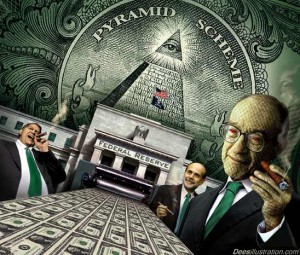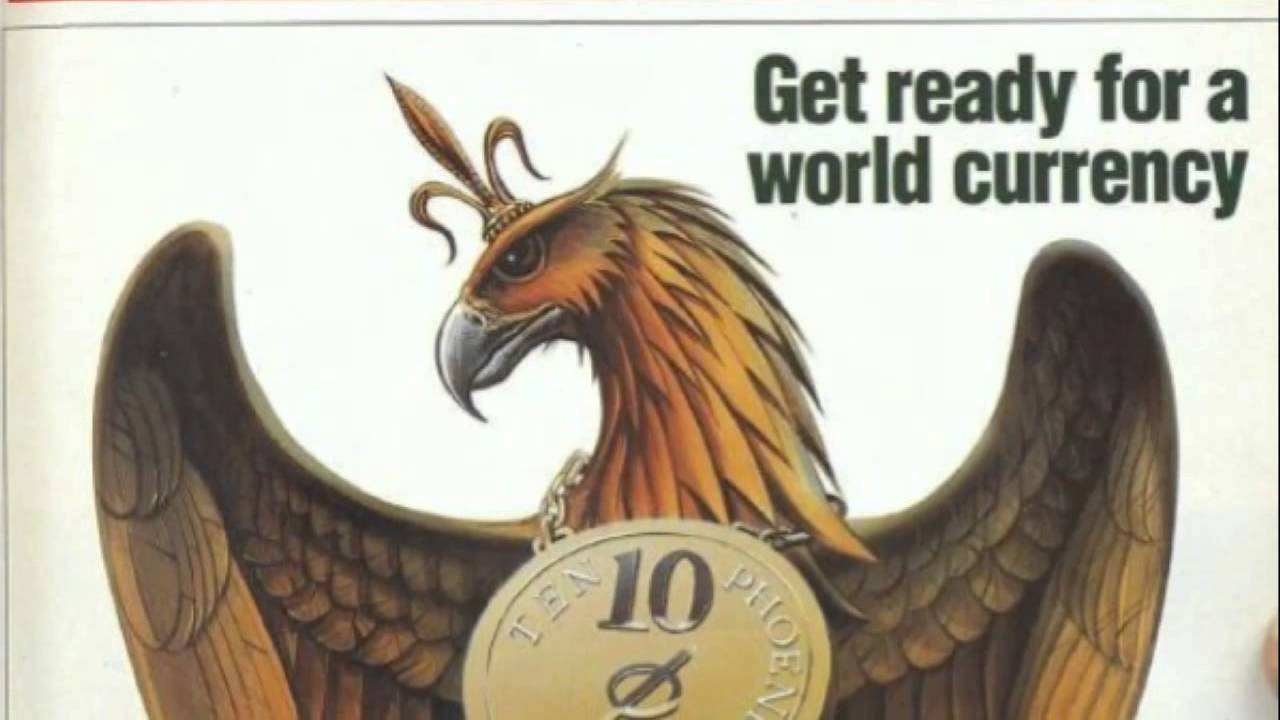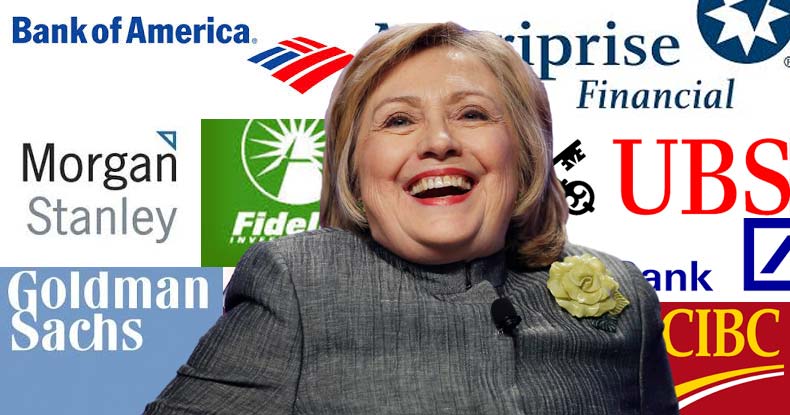When Rothschild issued his famous decree, “Give me control of a nation’s money and I care not who makes it’s laws”, it was not fully understood at the time what this would entail for the Western world. But hundreds of years later, these ominous words have come to pass and the private banking cabal has nearly achieved its goal of complete and total control over the economic, financial, and political policies of half the world.
But what exactly does it mean to have control over economic and political policies? Charles Hugh-Smith wrote on this recently, and stated that politicians now are afraid to pass any legislation that might impede the progress and profitability of banks, corporations, and markets, and in doing so has put restrictions on the people, not the banks, when events lead towards crises, insolvency, or collapse.
In effect, politicians now look to the markets for policy guidance, and any market turbulence now causes governments to quickly amend their policies to “rescue” the all-important markets from instability.This is a global trend that has gathered momentum since the program was broadcast in 1999, as The Global Financial Meltdown of 2008-09 greatly reinforced the dominance of markets.It’s not just banks that have become too big to fail; the markets themselves are now too influential and big to fail.The government must prop up markets, not just to insure the cash keeps flowing into political campaign coffers, but to save pension funds and the “wealth effect” that is now the sole driver of “growth” (expanding consumption) other than debt.To maintain the illusion of growth and rising wealth, the financial markets must continually reach greater extremes: extremes of debt, leverage, obscurity and valuations. These extremes destabilize markets, first beneath the surface and then all too visibly.This spells the end of the electoral-political control of the economy, as politicians of all stripes quickly abandon all their ideologies and policies and rush to “save” the markets from any turmoil, because that turmoil could destabilize not just the financial markets but the economy, pensions and ultimately the government’s ability to finance its own profligate borrowing and spending. - Of Two Minds
Recently, France decided to crack down on those people who make cash payments and withdrawals and who hold small bank accounts. The reason given was, not surprisingly, to “fight terrorism,” the handy catchall justification for any new restriction governments wish to impose on their citizens. French Finance Minister Michel Sapin stated at the time, “[T]errorism feeds on fraud, money laundering, and petty trafficking.”And so, in future, people in France will not be allowed to make cash payments exceeding €1,000 (down from €3,000). Additionally, cash deposits and withdrawals totaling more than €10,000 per month will be reported to Tracfin—an anti-fraud and money laundering agency.
Currency exchange will also be further restricted. Anyone changing over €1,000 to another currency (down from €8,000) will be required to show an identity card.
And France is not alone. In the US, federal law requires banks to file a “suspicious activity report” (SAR) on their customers whenever a customer requests a suspicious transaction. (In 2013, 1.6 million SAR’s were submitted.)
As to what may be deemed “suspicious,” it may be any transaction of $5,000 or more, but it may also mean a series of transactions that, together, exceed $5,000.
The reader may be saying to himself, “But that’s just normal, everyday banking business—that means anybody, any time, could be reported.” If so, he would be correct. Essentially, any banking activity the reader conducts could be regarded as suspect.
- In Italy, in 2011, Prime Minister Mario Monti began working to end the right of landlords, tradesmen, and small businesses to perform large transactions in cash, which critics say help them evade taxation. In December of that year, his government reduced the maximum allowed cash payment from €2,500 euros to €1,000.
- Spain has outlawed cash transactions over €2,500. The justification? “To crack down on the black market and tax evaders.”
- In Sweden, the country where the first banknote was created in 1661, the use of cash is being steadily eliminated. Increasingly, expenses are paid and purchases made by cellphone text message, and many banks have stopped handling cash altogether.
- Denmark’s central bank, Nationalbanken, has another justification for ending its use of banknotes—producing paper money and coinage is not cost effective.
- Israel also seeks to end the use of cash. Prime Minister Benjamin Netanyahu’s chief of staff has announced a three-phase plan to “all but do away with cash transactions in Israel.”
- Individuals and businesses would initially continue to be allowed to make small cash transactions, but eventually, all transactions would be converted to electronic forms of payment. The justification being used in Israel is that “cash is bad,” because it encourages an underground economy and enables tax evasion.
- Across the Atlantic, banks and governments are on a similar campaign. A 2012 law in Mexico bans large cash transactions, with a maximum penalty of five years in prison.
- In August 2014, Uruguay passed the Financial Inclusion Law, which limits cash transactions to US$5,000. In future, all transactions over that amount will be required to be performed electronically. The crying need for such a law? The stated reason was to improve the country’s credit ratings. - Jeff Thomas, Doug Casey’s International Man Blog
Added to this is J.P. Morgan’s new policy for their customers which no longer allows them to store cash in safety deposit boxes, or use the deemed legal tender to pay on debt obligations such as auto loans, mortgages, etc….
As we have seen recently with the former First Lady and former Secretary of State, politicians are simply servants available to the highest bidder, and for the right price will always implement policies and legislation to accommodate the elite, the banks, and the corporations. And with the SEC and CFTC refusing to even acknowledge the power and control that HFT computers have over the entire stock, bond, and forex markets, the people in the West are now slaves themselves to the banks, and no rule of law remains that will protect the citizens from the dictatorship of these entities.
Kenneth Schortgen Jr is a writer for Secretsofthefed.com, Examiner.com, Roguemoney.net, and To the Death Media, and hosts the popular web blog, The Daily Economist. Ken can also be heard Wednesday afternoons giving an weekly economic report on the Angel Clark radio show.


